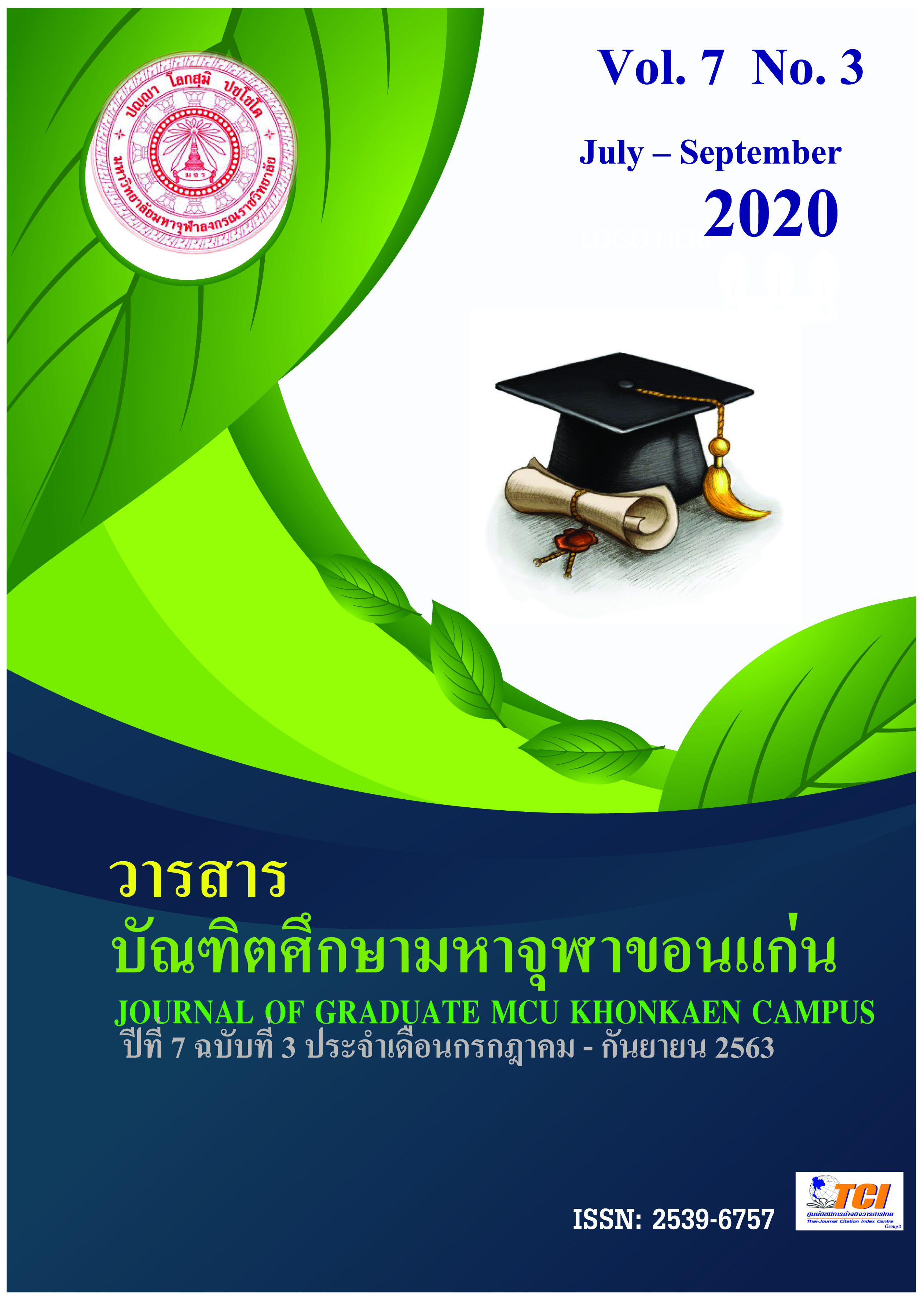LEARNING MANAGEMENT IN THE 21st CENTURY OF BASIC EDUCATION INSTITUTIONSUNDER THE OFFICE OF KHONKAEN PRIMARY EDUCATIONAL SERVICE AREA 1
Main Article Content
Abstract
The objectives of this research were: 1) to study the condition of learning management in the 21st century of basic education institutions under the Office of KhonKaen Primary Educational Service Area 1; 2) to compare learning management in the 21st century of basic education institutions under the Office of KhonKaen Primary Educational Service Area 1; 2) to present the guideline for promoting the learning management in the 21st century of basic education institutions under the Office of KhonKaen Primary Educational Service Area 1. This study was carried out by means of mixed research methodology. The research tool was a questionnaire to obtain the data from the samples consisting of 350 school administrators and teachers in basic schools under the Office of KhonKaen Primary Educational Service Area 1, in the academic year 2020. The data analysis relied on the following statistical results: Frequency, Percentage, Mean, Standard Deviation, t-test, One-way Analysis of Variance (One way ANOVA).
The results of the research are as follows:
1) The learning management in the 21st century of basic education institutions are viewed by school administrators and teachers at a high level in all aspects. The area that has the most practice was creativity (highest, ( = 4.73), followed by collaboration (highest, = 4.56) respectively, while the lowest mean was arithmetic (high, =4.00).
2) The comparison of learning management in the 21st century of basic education institutions under the Office of KhonKaen Primary Educational Service Area 1, classified by status, educational background and work experience both in overall and in all aspects showed no difference at the significance level of .05.
3) The guidelines for learning management in the 21st century of basic education institutions under the Office of KhonKaen Primary Educational Service Area 1 are that school administrators and teachers should promote students who lack skills in numeracy and in expression of their opinions by using various strategies such as how to think loudly, which is an expression of opinions that occurs in the teacher while working or while pondering the problem until receiving answers or using 3-level questions to help guide the way of thinking or expressing opinions in surrounded various stories with principles, reasons and demonstration which is the introduction of various knowledge contained in the head out to be connected and used to solve various problems.
Article Details
References
วิจารณ์ พานิช, การเรียนรู้เพื่อศิษย์ในศตวรรษที่ ๒๑ วิถีสร้างการเรียนรู้เพื่อศิษย์ในศตวรรษที่ ๒๑ กรุงเทพมหานคร : มูลนิธิสดศรี-สฤษดิ์วงศ์, ๒๕๕๕.
เครซี่และมอร์แกน (Krejcie and Morgan), อ้างใน บุญชม ศรีสะอาด,การวิจัยเบื้องต้น, พิมพ์ครั้งที่ ๙, (กรุงเทพมหานคร: สุวีริยาสาสน์, ๒๕๕๔), หน้า ๔๓.

